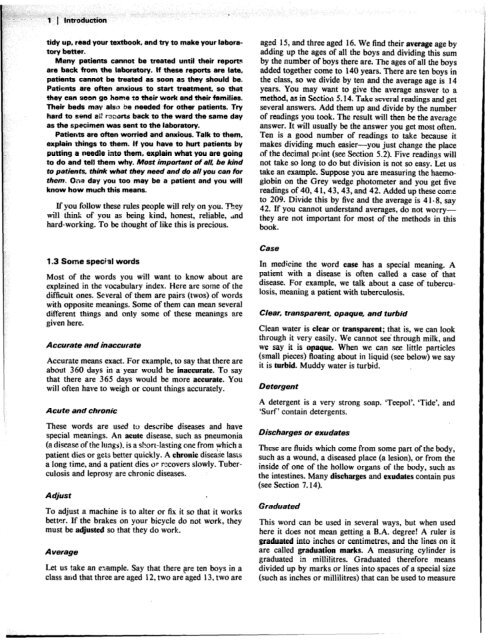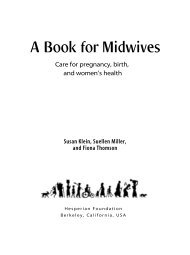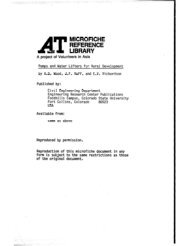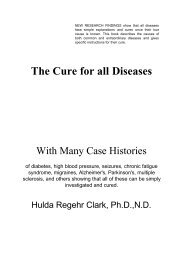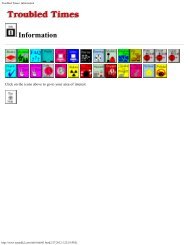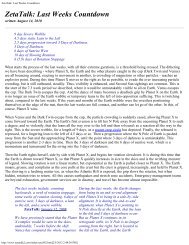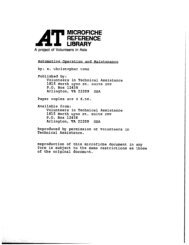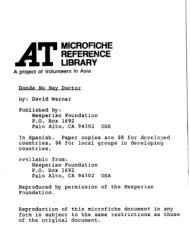MICROFICHE REFERENCE LIBRARY
MICROFICHE REFERENCE LIBRARY
MICROFICHE REFERENCE LIBRARY
You also want an ePaper? Increase the reach of your titles
YUMPU automatically turns print PDFs into web optimized ePapers that Google loves.
1 1 Introduction.tidy UP, read your textbook, and try to make your laboratorybatter.Many patients cannot be treated until their reportsare back from the laboratory. If these reports are late,patients cannot be treated a& soon as they should be.Patients are often anxious to start treatment, so thatthey can soon go home to their work and their families.Their beds may also be needed for other patients. Tryhard to send al! tzxwts back to the ward the same dayas the specimen was sent to the laboratory.Patients are often worried and anxious. Talk to them,explain things to them. If you have to hurt patients byputting a needle into them, explain what you are goingto do and tell them why. Most important of all. be kindto patients. think what they need and do all you can forthem. Ona day you too may be a patient and you willknow how much this means.If you follow these rules people will rely on you. Theywill think of you as being kind, honest, reliable, adhard-working. To be thought of like this is precious.1.3 Some special wordsMost of the words you will want to know about areexplained in the vocabulary index. Here are some of thedifficuit ones. Several of them are pairs (twos) of wordswith opposite meanings. Some of them can mean severaldifferent things and only some of these meanings aregiven here.Accurateand inaccurateAccurate means exact. For example, to say that there areabout 360 days in a year would be inaccurate. To saythat there are 365 days would be more accurate. Youwill often have to weigh or count things accurately.Acuteand chronicThese words are used. to describe diseases and havespecial meanings. An acute disease, such as pneumonia(a disease of the lungs), is a short-lasting one from which apatient dies or gets better quickly. A chronic disease lastsa long time, and a patient dies or recovers slowly. Tuberculosisand leprosy are chronic diseases.AdjustTo adjust a machine is to alter or fix it so that it worksbetter. If the brakes on your bicycle do not work, theymust be adjusted so that they do work.AverageLet us take an example. Say that there $re ten boys in aclass and that three are aged 12, two are aged 13, two areaged 15, and three aged 16. We find their average age byadding up the ages of all the boys and dividing this sumby the number of boys there are. The ages of all the boysadded together come to 140 years. There are ten boys inthe class, so we divide by ten and the average age is 14years. You may want to give the average answer to amethod, as in Section 5.14. Take several readings and getseveral answers. Add them up and divide by the numberof readings you took. The result will then be the averageanswer. It will usually be the answer you get most often.Ten is a good number of readings to take because itmakes dividing much easier-you just change the placeof the decimal point (see Section 5.2). Five readings willnot take so long to do but division is not so easy. Let ustake an example. Suppose you are measuring the haemoglobinon the Grey wedge photometer and you get fivereadings of 40,4 1,43,43, and 42. Added up these cometo 209. Divide this by five and the average is 41.8, say42. If you cannot understand averages, do not worrytheyare not important for most of the methods in thisbook.CaseIn medicine the word case has a special meaning. Apatient with a disease is often called a case of thatdisease. For example, we talk about a case of tuberculosis,meaning a patient with tuberculosis.Clear. transparent, opaque, and turbidClean water is clear or transparent; that is, we can lookthrough it very easily. We cannot see through milk, andwe say it is opaque. When we can see little particles(small pieces) floating about in liquid (see below) we sayit is turbid. Muddy water is turbid.DetergentA detergent is a very strong soap. ‘Teepol’, ‘Tide’, and‘Surf’ contain detergents.Dischargesor exudatesThese are fluids which come from some part of the body,such as a wound, a diseased place (a lesion), or from theinside of one of the hollow organs of the body, such asthe intestines. Many discharges and exudates contain pus(see Section 7.14).GraduatedThis word can be used in several ways, but when usedhere it does not mean getting a B.A. degree! A ruler isgraduated into inches or centimetres, and the lines on itare called graduation marks. A measuring cylinder isgraduated in millilitres. Graduated therefore meansdivided up by marks or lines into spaces of a special size(such as inches or millilitres) that can be used to measure


